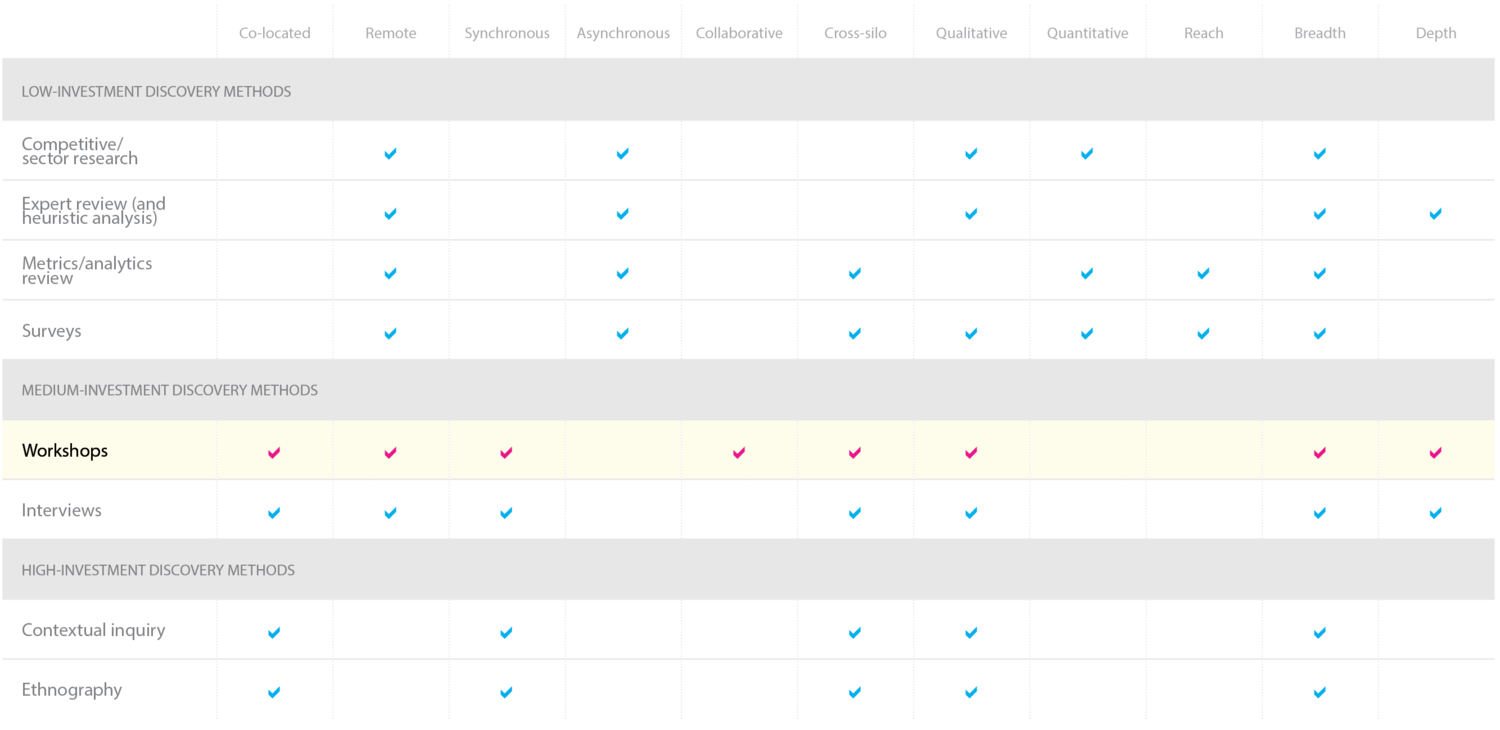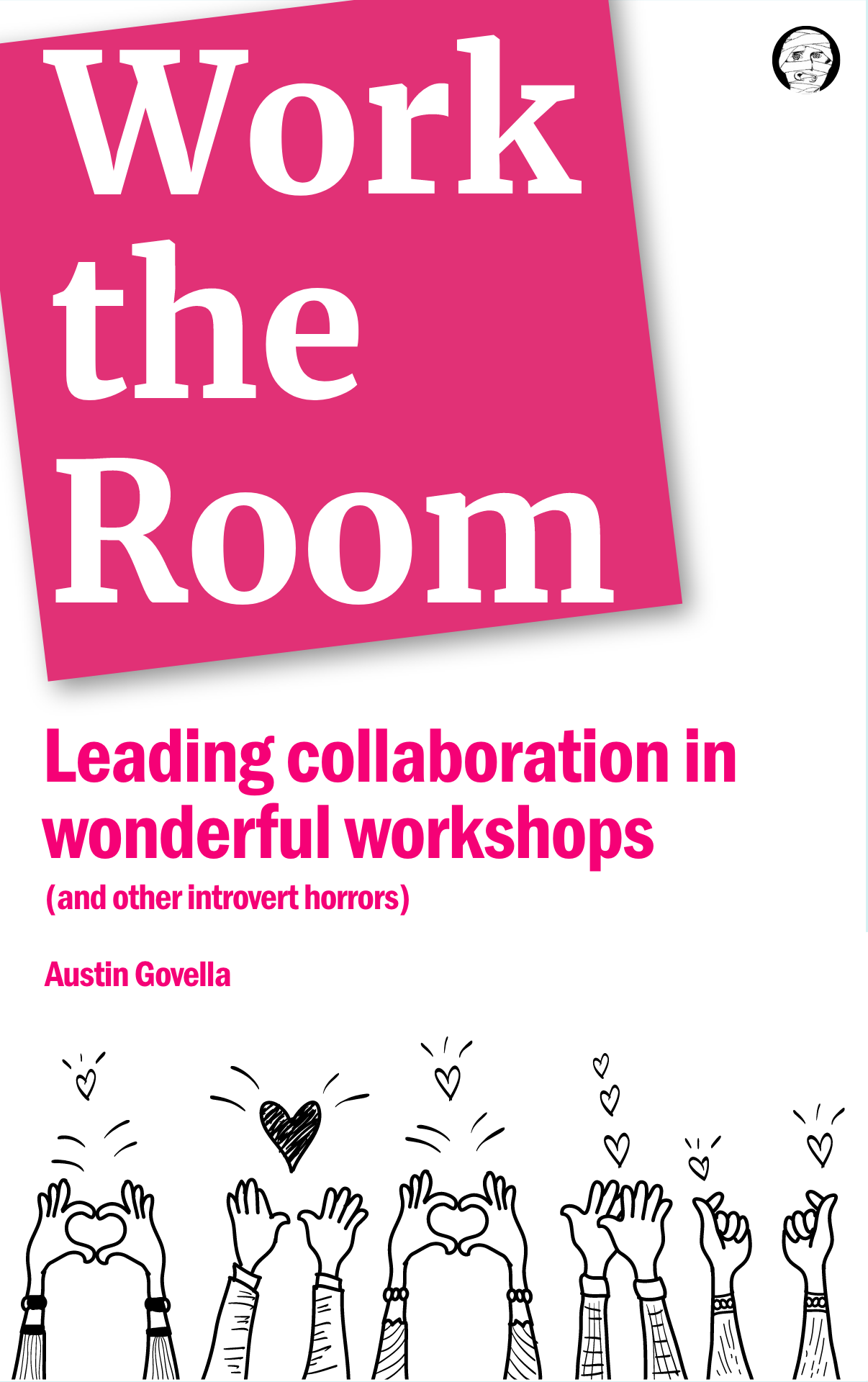Planning workshops
Important takeaways and lessons to keep in mind when planning your own UX workshops.
Why run workshops: comparing UX discovery methods
Workshops aren't the only way to conduct discovery, kickoff projects, or collaborate with stakeholders and users. I think they're the best way. These posts go into some of the rationale for when to choose workshops, as well as when not to choose workshops.
Photo by IxDA Seattle via Flickr and a Creative Commons license.
How to plan a workshop
Running a workshop requires a mix of skills. Beyond that, the most important part of running a workshop is planning a workshop.
Five rules for scheduling workshops
Make it easy for participants to attend and pay attention, and you'll get more out of your workshops.
How to move workshops from in-person to online
Three constraints separate virtual from in-person workshops: You have a smaller communication pipe, you can’t see everyone, and it’s harder to participate. Implement these six tactics to overcome issues with remote workshops.
How to schedule remote workshops
Scheduling workshops becomes a whole lot more tricky when you're working across timezones. Here's some tips for getting everyone together.
Books on workshop planning
Books to help shift your design practice to work more collaboratively with both your team and your clients.
More resources for planning workshops
Winning UX workshops, video (UIE’s All You Can Learn)
We’re all familiar with bad workshops: hours—or days—of unstructured discussion that ends with no clear outcome. Good workshops, however, are the perfect way to kick off a project, conduct discovery, and collaborate with coworkers. In this seminar, Avanade Digital experience director Austin Govella gives us a three-part surefire formula for effective, productive, and winning workshops: frame, facilitate, and finish.
Crafting the discovery phase, presentation
Dan Brown at the 2016 IA Summit—Dan looks at discovery methods based on what you're trying to accomplish: framing problems versus setting direction. He also organizes them based on whether you are diverging (generating options) or converging (choosing options). He provides useful inputs on whether and how you should plan workshops.
Want to facilitate wonderful workshops and masterful meetings?
Learn how to build trust, so participants jump into activities and how to lead collaboration, so you everyone participates. In Work the Room, Austin shares his 15 years of experience facilitating design thinking, innovation, and strategy workshops.
Visit the book website to learn more.




